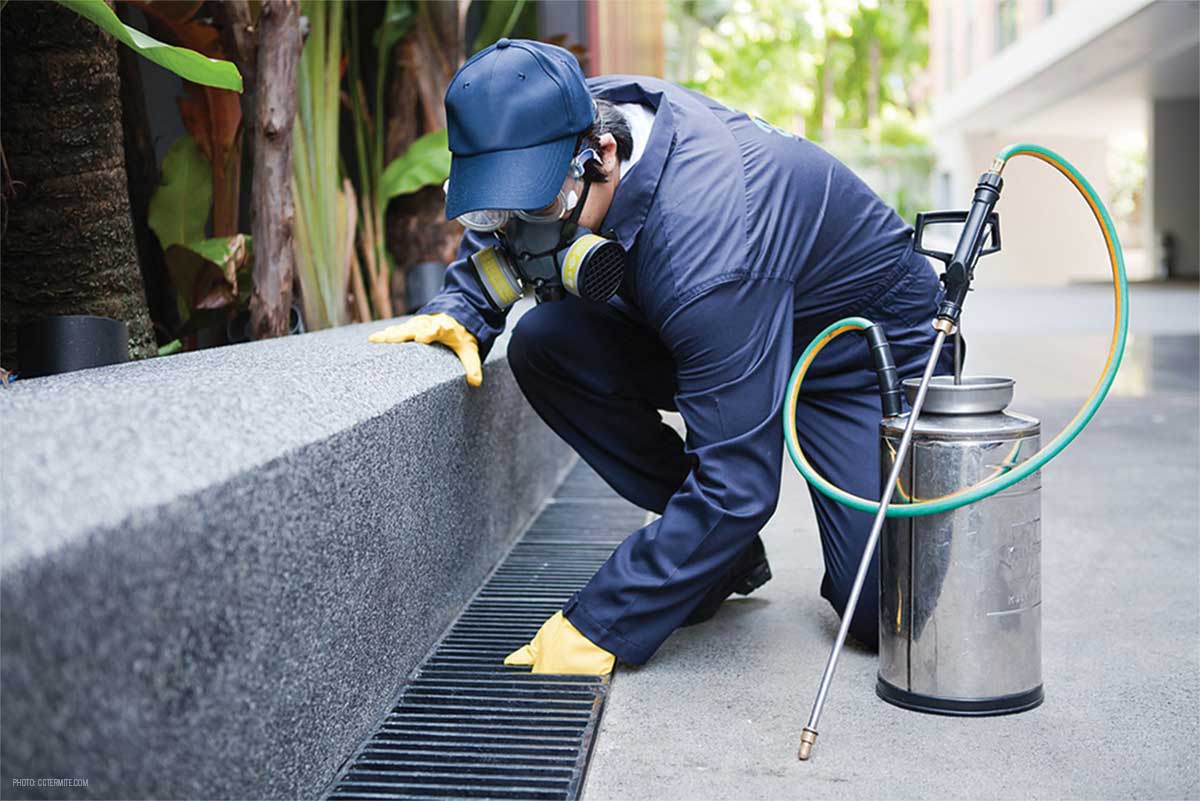Professional Exterminator Services: Bid Farewell to Vermin for Good!
Professional Exterminator Services: Bid Farewell to Vermin for Good!
Blog Article
Specialist Parasite Control Techniques for Long-Term Outcomes
Expert parasite control techniques encapsulate a detailed technique that starts with a complete assessment and assessment, followed by specific bug recognition to understand their habits patterns. The application of Integrated Parasite Monitoring (IPM) concepts, paired with eco-conscious therapies, forms the keystone of sustainable insect removal.
Inspection and Analysis
Upon entering a residential property for insect control services, the preliminary action is a thorough inspection and analysis to recognize the extent of the problem and figure out one of the most efficient treatment plan. Expert parasite control technicians are trained to meticulously take a look at the facilities, seeking signs of pest task such as droppings, chomp marks, nests, or any type of structural damage. They will certainly also examine the problems that might be drawing in parasites, such as food sources, water leakages, or access factors.

Parasite Recognition and Behavior

Additionally, recognizing the actions of the identified parasite is vital to applying effective control measures. As an example, understanding where parasites nest, what they eat, and their task patterns can assist pest control professionals develop methods to remove them effectively. Some parasites may be nighttime, while others are extra active throughout the day. This knowledge enables the application of treatments at optimum times for maximum effectiveness.
Integrated Insect Management (IPM)
Integrated Bug Administration (IPM) methods integrate numerous techniques to regulate and protect against parasite problems termite treatment in a lasting and ecologically friendly manner. exterminator. By incorporating approaches such as biological control, habitat manipulation, adjustment of cultural techniques, and using resistant selections, IPM intends to minimize making use of chemical pesticides
One of the crucial principles of IPM is the focus on avoidance. This proactive method includes tracking insect populaces frequently to detect any potential issues before they intensify. By identifying bug issues at an early stage, pest control measures can be implemented quickly and properly.
In addition, IPM advertises making use of non-toxic insect control techniques whenever possible. This can include employing natural predators of the insects, presenting helpful pests, or using scents to disrupt breeding patterns. By lowering dependence on chemical pesticides, IPM not just safeguards the environment yet additionally aids maintain an equilibrium in the community.
Environmentally-Friendly Treatments
Executing eco-conscious methods in parasite control procedures can properly resolve invasions while focusing on ecological sustainability. Environmentally-friendly therapies concentrate on minimizing the impact of insect control techniques on ecosystems, non-target microorganisms, and human health and wellness.
An additional key element of environmentally-friendly therapies is making use of natural and eco-friendly products that break down promptly without leaving dangerous deposits in the environment. Organic insecticides originated from plants like chrysanthemums or neem supply why not try these out efficient insect control while positioning very little risk to non-target types. Employing methods like heat treatments or pheromone traps can target details pests with precision, reducing the overall environmental effect of parasite control methods.
Recurring Monitoring and Upkeep
Regular assessments by qualified professionals are necessary to identify any type of indications of bug activity, assess the performance of previous therapies, and make adjustments to the insect control strategy as needed. By keeping track of parasite populaces over time, insect control experts can track patterns, expect possible problems, and implement precautionary steps to decrease the danger of future infestations.
Along with monitoring, upkeep methods are essential for lasting pest control success. This includes applying correct hygiene procedures to remove prospective food and water resources for bugs, sealing access factors to stop parasites from entering the premises, and addressing any kind of structural problems that might help with parasite invasions (Exterminator DC). By integrating ongoing surveillance and upkeep into an integrated parasite monitoring approach, resource organizations can make certain a pest-free setting and guard their building against costly damages and health dangers
Conclusion
In verdict, using expert pest control strategies such as detailed assessment and analysis, exact insect recognition and understanding of their actions, incorporated pest management techniques, environmentally-friendly therapies, and continuous surveillance and maintenance are crucial for attaining lasting outcomes in parasite control. By applying these techniques, individuals can successfully take care of parasite problems and keep a pest-free setting in a lasting manner.
Report this page